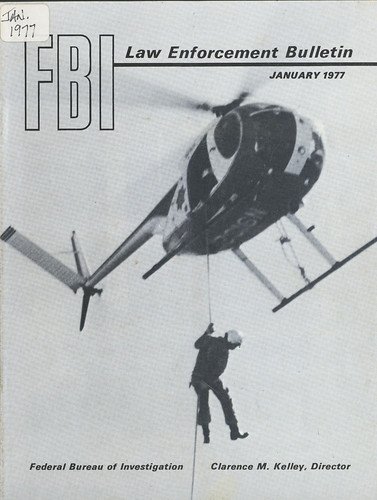Under FBI orders, Facebook and Google removed American Herald Tribune, an alternative site that publishes US and European writers critical of US foreign policy. The bureau's justification for the removal was dubious, and it sets a troubling precedent for other critical outlets.
The FBI has publicly justified its suppression of dissenting online views about US foreign policy if a media outlet can be somehow linked to one of its adversaries. The Bureau's justification followed a series of instances in which Silicon Valley social media platforms banned accounts following consultations with the FBI.
In a particularly notable case in 2018, the FBI encouraged Facebook, Instagram and Google to remove or restrict ads on the American Herald Tribune (AHT), an online journal that published critical opinion articles on US policy toward Iran and the Middle East. The bureau has never offered a clear rationale, however, despite its private discussions with Facebook on the ban.
The FBI's first step toward intervening against dissenting views on social media took place in October 2017 with the creation of a Foreign Influence Task Force (FTIF) in the bureau's Counterintelligence Division. Next, the FBI defined any effort by states designated by the Department of Defense as major adversaries (Russia, China, Iran and North Korea) to influence American public opinion as a threat to US national security.
In February 2020, the FBI defined that threat in much more specific terms and implied that it would act against any online media outlet that was found to fall within its ambit. At a conference on election security on February 24, David K. Porter, who identified himself as Assistant Section Chief of the Foreign Influence Task Force, defined what the FBI described as "malign foreign influence activity" as "actions by a foreign power to influence U.S. policy, distort political sentiment and public discourse."
Porter described "information confrontation" as a force "designed to undermine public confidence in the credibility of free and independent news media." Those who practice this dark craft, he said, seek to "push consumers to alternative news sources," where "it's much easier to introduce false narratives" and thus "sow doubt and confusion about the true narratives by exploiting the media landscape to introduce conflicting story lines."
"Information confrontation", however, is simply the literal Russian translation of the term "information warfare." Its use by the FTIF appears to be aimed merely at justifying an FBI role in seeking to suppress what it calls "alternative news sources" under any set of circumstances it can justify.
While expressing his intention to target alternative media, Porter simultaneously denied that the FBI was concerned about censoring media. The FITF, he said "doesn't go around chasing content. We don't focus on what the actors say." Instead, he insisted that "attribution is key," suggesting that the FTIF was only interested in finding hidden foreign government actors at work.
Thus the question of "attribution" has become the FBI's key lever for censoring alternative media that publishes critical content on U.S. foreign policy, or which attacks mainstream and corporate media narratives. If an outlet can be somehow linked to a foreign adversary, removing it from online platforms is fair game for the feds.
The strange disappearance of American Herald Tribune
In 2018, Facebook deleted the Facebook page of the American Herald Tribune (AHT), a website that publishes commentary from an array of notable authors who are harshly critical of U.S. foreign policy. Gmail, which is run by Google, quickly followed suit by removing ads linked to the outlet, while the Facebook-owned Instagram scrubbed AHT's account altogether.
Tribune editor Anthony Hall reported at the time that the removals occurred at the end of August 2018, but there was no announcement of the move by Facebook. Nor was it reported by the corporate news media until January 2020, when CNN elicited a confirmation from a Facebook spokesman that it had indeed done so in 2018. Furthermore, the FBI was advising Facebook on both Iranian and Russian sites that were banned during that same period of a few days. As Facebook's chief security officer Alex Stamos noted on July 21, 2018, "We have proactively reported our technical findings to US law enforcement, because they have much more information than we do, and may in time be in a position to provide public attribution."
On August 2, a few days following the removal of AHT and two weeks after hundreds of Russian and Iranian Pages had been removed by Facebook, FBI Director Christopher Wray told reporters at a White House briefing that FBI officials had "met with top social media and technology companies several times" during the year, "providing actionable intelligence to better enable them to address abuse of their platforms by foreign actors." He remarked that FBI officials had "shared specific threat indicators and account information so they can better monitor their own platforms."
Cybersecurity firm FireEye, which boasts that it has contracts to support "nearly every department in the United States government," and which has been used by Department of Homeland Security as a primary source of "threat intelligence," also influenced Facebook's crackdown on the Tribune. CNN cited an unnamed official of FireEye stating that the company had "assessed" with "moderate confidence" that the AHT's website was founded in Iran and was "part of a larger influence operation."
The CNN author was evidently unaware that in U.S. intelligence parlance "moderate confidence" suggests a near-total absence of genuine conviction. As the 2011 official "consumer's guide" to US intelligence explained, the term "moderate confidence" generally indicates that either there are still differences of view in the intelligence community on the issue or that the judgment "is credible and plausible but not sufficiently corroborated to warrant higher level of confidence."
(Note: You can view every article as one long page if you sign up as an Advocate Member, or higher).






